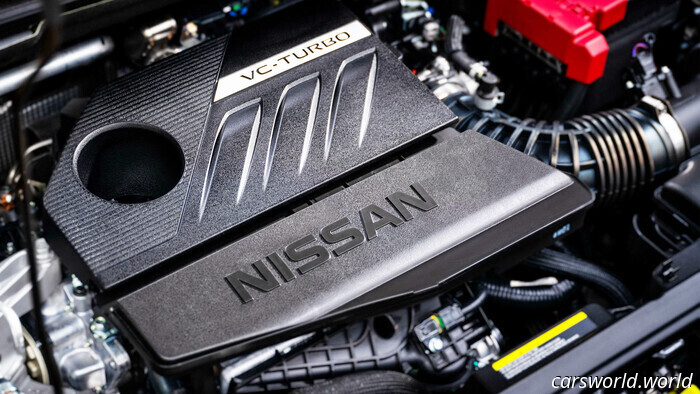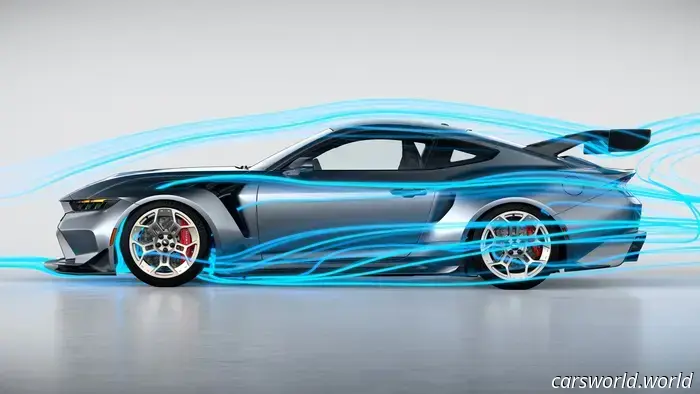
Nissan Drivers File Lawsuit Over Turbo Engines That Fail Suddenly Despite Repairs | Carscoops
In June, Nissan announced a recall for various vehicles using these engines, which are also found in Infiniti models.
Recently, it has been reported that Nissan's VC-Turbo engine experiences issues such as rough idling, stalling, and failures. One owner reported significant engine troubles starting at just 157 miles on his Rogue, while the automaker is said to have denied coverage for diagnostics and repairs under the warranty.
Ten years ago, engineers unveiled an innovative engine design featuring a variable compression system aimed at enhancing efficiency and performance. Nissan and Infiniti were among the first to embrace this technology, which still appears in several of their models today.
However, what was initially promoted as a groundbreaking advancement has now become the subject of a new class action lawsuit alleging that these engines can fail catastrophically, potentially leaving drivers stranded.
This case, filed in Delaware, focuses on Nissan’s VC-Turbo engines. Theoretically, this system adjusts compression in real-time to optimize fuel economy and power. In reality, the lawsuit claims that owners are encountering engines that hesitate, produce high-pitched whirring sounds, idle unevenly, stall, lose power, or even shut down entirely while the vehicle is in motion.
The class action claims that the engine suffers from main bearing issues and other complications. It further alleges that Nissan was aware, or should have been aware, of the defect but concealed it from consumers.
Surprised Owners
The lawsuit names four plaintiffs, including Dennis Becker. On March 30, 2024, he bought a new 2023 Rogue from Harbor Nissan in Charlotte, Florida, but after just 157 miles, he received an 'Engine Malfunction Power Reduced Service Now' warning. He claims the vehicle stalled and could not be restarted.
Becker states that the dealer replaced the Rogue’s battery, but the problem persisted. A software update for the engine control module also failed to resolve the issue. A month later, the same warning reappeared, and the dealer subsequently replaced the exhaust gas recirculation valve, yet the problem remained, leaving Becker’s Rogue still defective.
Claims of Concealment
The class action contends that Nissan frequently denies the existence of the defect until warranties expire, forcing customers to pay for diagnostics and repairs themselves. This, according to the plaintiffs, results in many owners incurring substantial costs even when their vehicles should still be covered.
"The Engine Defect has been documented to occur unexpectedly, with drivers caught off guard when the engines in the Class Vehicles suddenly lose power or stop altogether," states the lawsuit. "Even if no collision occurs, plaintiffs and consumers face thousands in out-of-pocket expenses to repair or replace the damaged engine and its components."
Affected Models
The lawsuit encompasses the 2021-2023 Nissan Rogue, 2019-2023 Nissan Altima, and 2019-2023 Infiniti QX50. It also argues that a recent recall by the automaker for its variable compression turbo engines offers insufficient repairs, amounting to what seems like "just a few oil changes" for most owners.



Other articles
 Ford CEO ‘Declined To Proceed’ When Team Advocated for Lincoln to Become Fully Electric: TDS
Ford CEO Jim Farley stated, "I believe we are beginning to find the right positioning for the Lincoln brand."
Ford CEO ‘Declined To Proceed’ When Team Advocated for Lincoln to Become Fully Electric: TDS
Ford CEO Jim Farley stated, "I believe we are beginning to find the right positioning for the Lincoln brand."
 The EV Battery Research That Everyone is Referencing? You Completely Misinterpreted It | Carscoops
Battery experts have warned electric vehicle owners to avoid harming their batteries due to misinterpretation of a recent study.
The EV Battery Research That Everyone is Referencing? You Completely Misinterpreted It | Carscoops
Battery experts have warned electric vehicle owners to avoid harming their batteries due to misinterpretation of a recent study.
 The Mercedes-AMG GT XX EV recently achieved a speed of 186 MPH for a duration of 7 days, only pausing to recharge.
Thanks to George Russell, Doriane Pin, and Fabian Vettel, Mercedes broke 25 EV records at the Nardo high-speed track in Italy.
The Mercedes-AMG GT XX EV recently achieved a speed of 186 MPH for a duration of 7 days, only pausing to recharge.
Thanks to George Russell, Doriane Pin, and Fabian Vettel, Mercedes broke 25 EV records at the Nardo high-speed track in Italy.
 Nissan's Compact Kei Car Conceals an Unexpected Surprise Within Its Small, Boxy Frame | Carscoops
Nissan has updated the JDM-exclusive Roox, incorporating some stylistic modifications along with enhanced technology and safety features.
Nissan's Compact Kei Car Conceals an Unexpected Surprise Within Its Small, Boxy Frame | Carscoops
Nissan has updated the JDM-exclusive Roox, incorporating some stylistic modifications along with enhanced technology and safety features.
 A Toyota Prius as a pretend supercar may seem unwise, but it surprisingly appears quite fitting. | Carscoops
An independent digital artist transforms the modest Toyota Prius into a sleek roadster with unique proportions.
A Toyota Prius as a pretend supercar may seem unwise, but it surprisingly appears quite fitting. | Carscoops
An independent digital artist transforms the modest Toyota Prius into a sleek roadster with unique proportions.
 Secret Revealed: The Ford Mustang GTD Transferred Its Wing to the Mustang GT3.
All of a sudden, street cars are having an impact on race cars instead of the other way around.
Secret Revealed: The Ford Mustang GTD Transferred Its Wing to the Mustang GT3.
All of a sudden, street cars are having an impact on race cars instead of the other way around.
Nissan Drivers File Lawsuit Over Turbo Engines That Fail Suddenly Despite Repairs | Carscoops
In June, Nissan announced a recall for multiple vehicles that have these engines, which are also utilized in Infiniti models.
